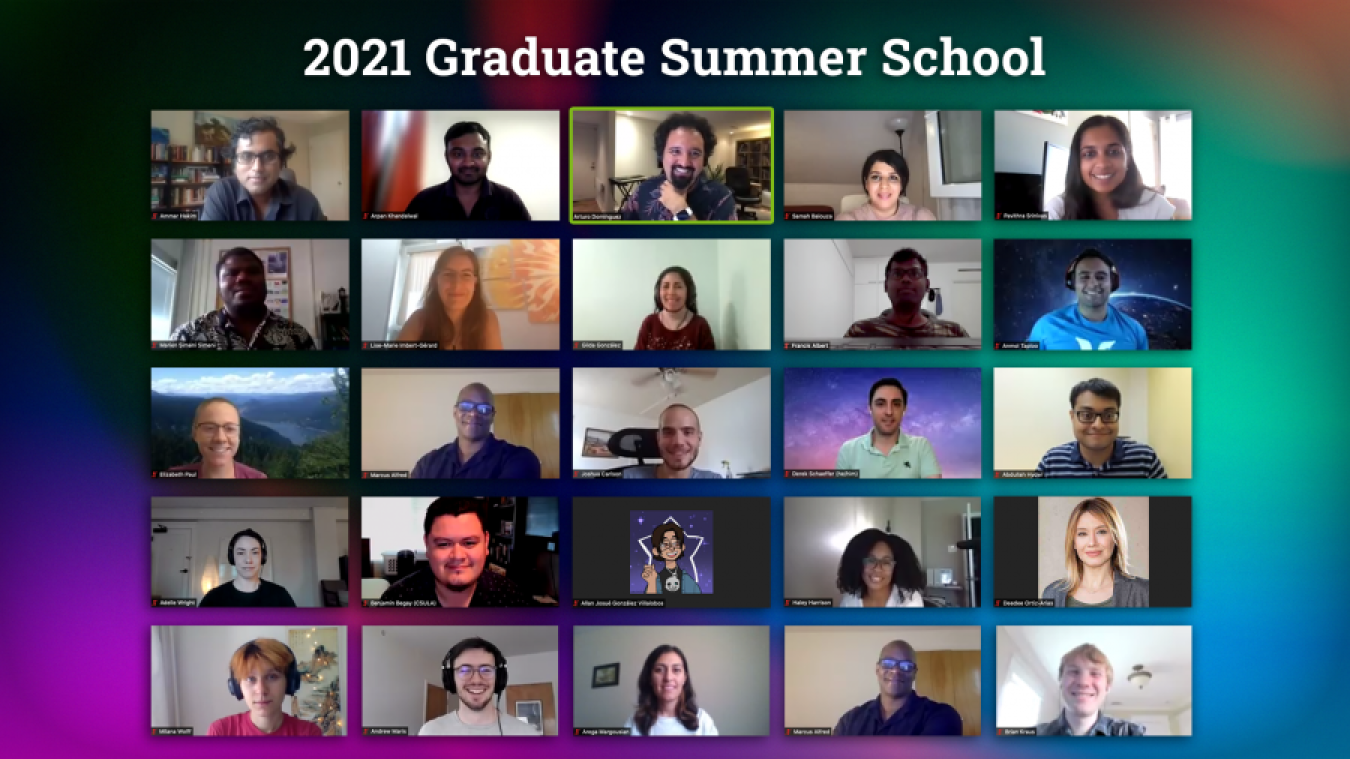Princeton Plasma Physics Lab's GSS is an opportunity for graduate students to expand on their plasma physics knowledge and learn from experts in the field about the latest research and methods.
September 14, 2021
Editor's note: this article was originally posted on PPPL's website.
Classes were back in (virtual) session at the Princeton Plasma Physics Laboratory’s (PPPL) Graduate Summer School (GSS) where graduate students from around the globe showcased their research and attended lectures given by PPPL physicists and guest instructors that exposed them to topics related to plasma physics.
“The PPPL graduate summer school is a chance for graduate students from all across the country, and the world, in different fields of plasma physics to come together and meet the scientists and students in the field,” said Arturo Dominguez, a PPPL Science Education senior program leader and the summer school’s lead organizer.
The study of plasma, the fourth state of matter that makes up 99 percent of the visible universe, is still a growing field. GSS is an opportunity for graduate students to expand on their plasma physics knowledge and learn from experts in the field about the latest research and methods. “I think that this is a really great time to be in plasma physics,” PPPL Director Steve Cowley said when he welcomed attendees to the program on the first day. “There are some really interesting things happening these days because of the improved technology which has allowed us to increase our capabilities and become more quantitative and predictive.”
The summer school program, held the week of Aug. 16 and in its fourth consecutive year, consists of three mini-courses taught throughout the week with student presentations interspersed. The mini-courses focused on computational methods in plasma physics, stellarators, and plasma diagnostics. In this format, attendees get a taste of plasma physics that they can then take back and apply to their research or share with others. “The mini-course format is very interesting because you can pique the curiosity of the students and they can dig in later,” said Lise-Marie Imbert-Gérard, a mathematics professor at the University of Arizona and one of the GSS instructors.
This year’s cohort had 25 students hailing from the U.S. and around the globe, including Brazil, Finland, Argentina, Germany, and France. Compared with the hundreds of participants in the remote undergraduate introduction to plasma and fusion course, GSS is a much smaller cohort that provides a more intimate and personalized experience, Dominguez said.
“It’s great that this is open to all the universities, not just Princeton,” said Gilda González, a GSS participant and a Ph.D. student studying ionospheric physics at the National University of Tucumán in Argentina. “It’s open to all graduate students and I think that it’s a great opportunity.”
While the lectures were open for anyone, GSS cohort members had the chance to participate in virtual networking events with PPPL graduate students and post-presentation online “hallway discussions” where they could ask presenters more questions. “I liked the fact that each lecture was followed by the open hallway,” said Imbert-Gérard. “It facilitates more informal discussions.”
In addition to the GSS poster sessions, which can be viewed at this link(link is external), some participants presented their research. Samah Balouza, a Ph.D. physics student at Ludwig Maximilian University in Germany and a GSS attendee, gave a poster session on her research titled, “Intense Laser Radiation Interacting with Nano-Structured Matter.” “It was amazing that I was asked to present and I was very happy for the opportunity,” she said. “I wanted to use the chance to present my work in front of experts in this field to get great feedback from my colleagues.”
Participants also had the chance to further explore plasma physics at PPPL during the undergraduate research virtual poster sessions that were happening concurrently with GSS.
Despite the fact that the summer school wasn’t in person this year, the true value of it wasn’t lost on presenters and participants. “These types of summer schools are very important because part of the role of the Lab should be in education and it should be broader than just Princeton University,” said PPPL physicist and GSS instructor Ammar Hakim. “We have the ability to provide things that other schools can’t.”
The GSS program is supported by the U.S. Department of Energy’s (DOE) Office of Science and funded by a grant from the DOE’s Office of Fusion Energy Sciences. To view past GSS lectures and learn more, visit gss.pppl.gov(link is external). The GSS encourages all graduate students whose research intersects with plasma physics to apply to the program.
PPPL, on Princeton University's Forrestal Campus in Plainsboro, N.J., is devoted to creating new knowledge about the physics of plasmas — ultra-hot, charged gases — and to developing practical solutions for the creation of fusion energy. The Laboratory is managed by the University for the U.S. Department of Energy’s Office of Science, which is the single largest supporter of basic research in the physical sciences in the United States and is working to address some of the most pressing challenges of our time. For more information, visit energy.gov/science(link is external).

